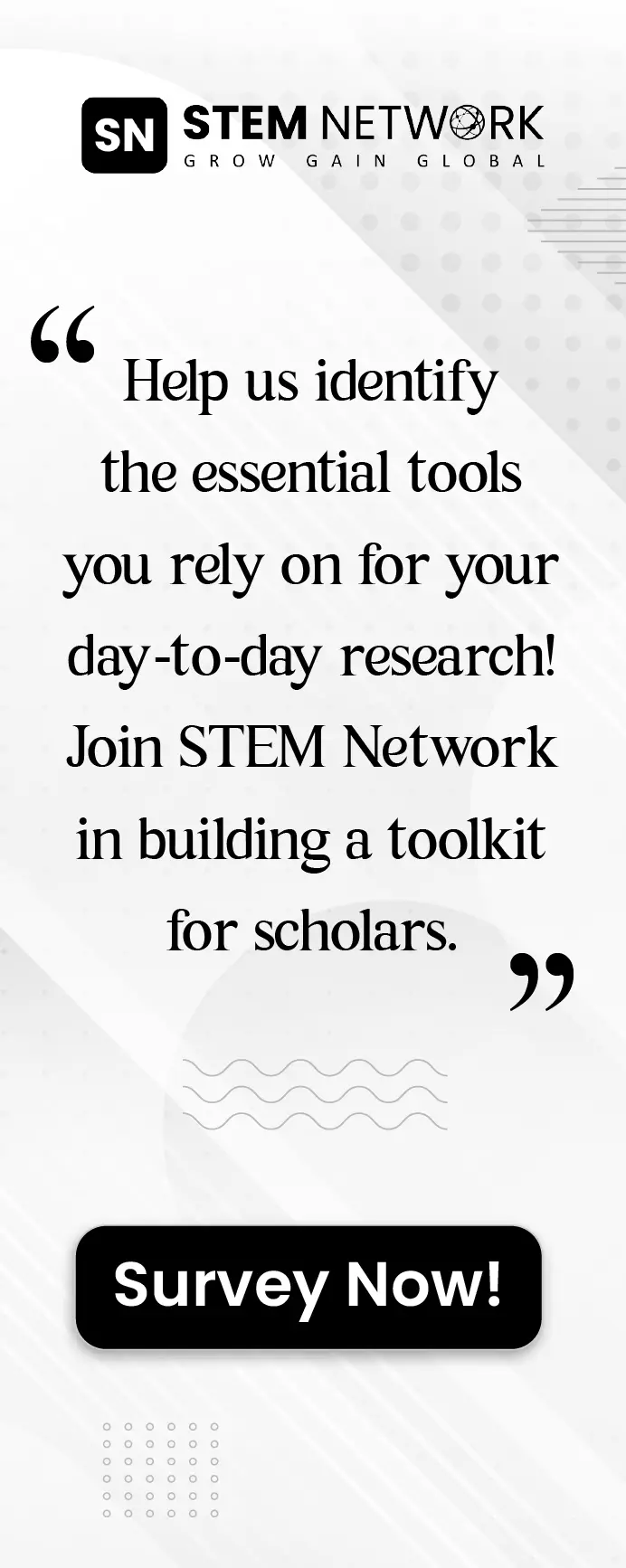

Semantic
As the volume of academic literature continues to grow, researchers face the challenge of efficiently discovering and managing relevant information. Semantic emerges as a powerful research discovery platform designed to facilitate access to academic content and enhance collaboration among scholars. This overview explores Semantic's features, benefits, and its role in transforming the research landscape.
Semantic
As the volume of academic literature continues to grow, researchers face the challenge of efficiently discovering and managing relevant information. Semantic emerges as a powerful research discovery platform designed to facilitate access to academic content and enhance collaboration among scholars. This overview explores Semantic's features, benefits, and its role in transforming the research landscape.
What is Semantic?
Semantic is an innovative research discovery platform that leverages advanced algorithms and artificial intelligence to help researchers navigate the vast world of academic literature. By providing personalized recommendations and insights, Semantic enables users to discover relevant research, connect with peers, and enhance their academic experience.
Key Features of Semantic
 Smart Recommendations: Semantic utilizes advanced algorithms to provide personalized research recommendations based on users' interests and previous searches. This feature enhances the discovery process, ensuring that users find relevant content efficiently.
Smart Recommendations: Semantic utilizes advanced algorithms to provide personalized research recommendations based on users' interests and previous searches. This feature enhances the discovery process, ensuring that users find relevant content efficiently. Comprehensive Database: The platform boasts a vast database of academic literature, including journals, conference papers, and research articles. Users can access a wealth of information from various disciplines, streamlining their research efforts.
Comprehensive Database: The platform boasts a vast database of academic literature, including journals, conference papers, and research articles. Users can access a wealth of information from various disciplines, streamlining their research efforts. Advanced Search Functionality: Semantic's search functionality allows users to filter results by various criteria, including publication date, author, and relevance. This flexibility ensures that users can quickly locate the information they need.
Advanced Search Functionality: Semantic's search functionality allows users to filter results by various criteria, including publication date, author, and relevance. This flexibility ensures that users can quickly locate the information they need. Collaboration Tools: Semantic fosters collaboration among researchers by providing tools for sharing insights and connecting with peers. Users can create profiles, follow colleagues, and engage in discussions related to their research interests.
Collaboration Tools: Semantic fosters collaboration among researchers by providing tools for sharing insights and connecting with peers. Users can create profiles, follow colleagues, and engage in discussions related to their research interests. Citation Management: The platform offers built-in citation management tools, allowing users to organize and format citations seamlessly. This feature simplifies the process of referencing sources in research papers.
Citation Management: The platform offers built-in citation management tools, allowing users to organize and format citations seamlessly. This feature simplifies the process of referencing sources in research papers. User-Friendly Interface: Semantic features an intuitive and user-friendly interface, making it accessible for researchers at all levels. The platform's design enhances the overall user experience and encourages exploration.
User-Friendly Interface: Semantic features an intuitive and user-friendly interface, making it accessible for researchers at all levels. The platform's design enhances the overall user experience and encourages exploration. Integration with Research Tools: Semantic integrates with popular research tools and software, allowing users to streamline their workflows. This feature enhances the platform's utility and facilitates data management.
Integration with Research Tools: Semantic integrates with popular research tools and software, allowing users to streamline their workflows. This feature enhances the platform's utility and facilitates data management. Alerts and Notifications: Users can set up alerts and notifications to stay informed about new publications and research developments in their field. This feature ensures that researchers remain up-to-date with the latest findings.
Alerts and Notifications: Users can set up alerts and notifications to stay informed about new publications and research developments in their field. This feature ensures that researchers remain up-to-date with the latest findings. Analytics Dashboard: Semantic provides users with an analytics dashboard that tracks research activities and insights. This feature enables researchers to monitor their engagement and productivity.
Analytics Dashboard: Semantic provides users with an analytics dashboard that tracks research activities and insights. This feature enables researchers to monitor their engagement and productivity. Mobile Accessibility: The platform is accessible via mobile devices, allowing users to conduct research and access content on the go. This feature is particularly valuable for researchers working in dynamic environments.
Mobile Accessibility: The platform is accessible via mobile devices, allowing users to conduct research and access content on the go. This feature is particularly valuable for researchers working in dynamic environments.
Benefits of Using Semantic
 Enhanced Research Discovery: Semantic's smart recommendations and comprehensive database streamline the research discovery process, saving users time and effort.
Enhanced Research Discovery: Semantic's smart recommendations and comprehensive database streamline the research discovery process, saving users time and effort. Improved Collaboration: The collaboration tools foster connections among researchers, facilitating knowledge sharing and enhancing academic discourse.
Improved Collaboration: The collaboration tools foster connections among researchers, facilitating knowledge sharing and enhancing academic discourse. Efficient Citation Management: Built-in citation management simplifies the process of referencing sources, ensuring that researchers maintain accurate citations in their work.
Efficient Citation Management: Built-in citation management simplifies the process of referencing sources, ensuring that researchers maintain accurate citations in their work. Real-Time Updates: Alerts and notifications keep researchers informed about new developments in their field, enabling them to stay ahead of the curve.
Real-Time Updates: Alerts and notifications keep researchers informed about new developments in their field, enabling them to stay ahead of the curve.
Semantic vs. Other Research Discovery Platforms
Semantic is often compared to other research discovery platforms, such as Google Scholar and ResearchGate. Here's how it compares:
 Personalization: Semantic's smart recommendations are tailored to individual users, providing a more personalized experience compared to broader search engines like Google Scholar.
Personalization: Semantic's smart recommendations are tailored to individual users, providing a more personalized experience compared to broader search engines like Google Scholar. Collaboration Features: While ResearchGate emphasizes networking, Semantic focuses on research discovery and insights, enhancing users' ability to find relevant content.
Collaboration Features: While ResearchGate emphasizes networking, Semantic focuses on research discovery and insights, enhancing users' ability to find relevant content. Citation Management: Semantic's integrated citation management tools offer a seamless experience for researchers, distinguishing it from platforms that lack this feature.
Citation Management: Semantic's integrated citation management tools offer a seamless experience for researchers, distinguishing it from platforms that lack this feature.
How to Get Started with Semantic
Getting started with Semantic is simple. Follow these steps to enhance your research discovery experience:
 Create an Account: Visit the Semantic website to sign up for a free account and access the platform.
Create an Account: Visit the Semantic website to sign up for a free account and access the platform. Set Up Your Profile: Complete your profile by adding your research interests, affiliations, and areas of expertise. This information helps Semantic provide personalized recommendations.
Set Up Your Profile: Complete your profile by adding your research interests, affiliations, and areas of expertise. This information helps Semantic provide personalized recommendations. Explore the Database: Utilize the advanced search functionality to explore the extensive database of academic literature. Filter results to find the most relevant content.
Explore the Database: Utilize the advanced search functionality to explore the extensive database of academic literature. Filter results to find the most relevant content. Engage with Peers: Connect with colleagues and other researchers by following their profiles and engaging in discussions. Use the collaboration tools to share insights and ideas.
Engage with Peers: Connect with colleagues and other researchers by following their profiles and engaging in discussions. Use the collaboration tools to share insights and ideas. Utilize Citation Management: Take advantage of the citation management tools to organize and format your references as you conduct research.
Utilize Citation Management: Take advantage of the citation management tools to organize and format your references as you conduct research. Stay Informed: Set up alerts and notifications to receive updates on new publications and research developments in your field.
Stay Informed: Set up alerts and notifications to receive updates on new publications and research developments in your field. Leverage the Analytics Dashboard: Monitor your research activities and insights using the analytics dashboard to track your engagement and productivity.
Leverage the Analytics Dashboard: Monitor your research activities and insights using the analytics dashboard to track your engagement and productivity. Access Mobile Features: Download the Semantic mobile app to access content and conduct research on the go, ensuring that you can stay connected to your work at all times.
Access Mobile Features: Download the Semantic mobile app to access content and conduct research on the go, ensuring that you can stay connected to your work at all times.
Conclusion
Semantic is a game-changing research discovery platform that empowers researchers to navigate the vast world of academic literature effectively. With its personalized recommendations, collaboration tools, and efficient citation management, Semantic enhances the research experience and fosters connections among scholars. Embrace Semantic as your essential research companion and transform the way you discover and manage academic content today.
Resource Library
Partnered Content Networks
© 2024 STEM Network. All rights reserved.





























